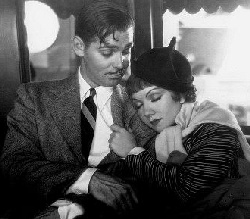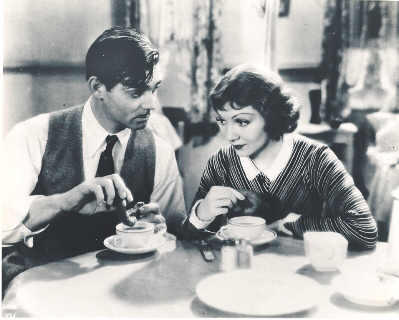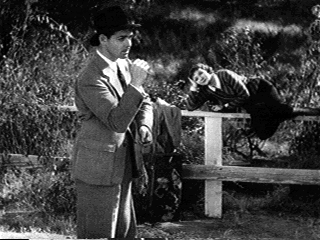 |
|
|---|---|
Menander's DyskolosAs with all Greek plays, Dyskolos begins with a prologue that provides basic background information to the audience. The particular informant in this prologue is the Greek god of rustic life and revelry Pan. Menander chose to have gods at the opening of his plays because they are seen as more knowledgeable and are capable of observing the action of the play. Also, gods in comedy provide the comfort of divine intervention, assuring the audience that everything will turn out okay. Having the god Pan in particular is appropriate because the play takes place in the country, right next to Pan's shrine. Although after the prologue, Pan is not seen in the play, his personality and the elements that he stands for still tie into the central theme of fellowship and revelry. Aristotle, in his Poetics, talks about the need for a unified plot. It is not simply enough for a main character to appear in every scene, there must be a beginning which naturally leads to a middle which in turn leads to an end. The action in Dyskolos is centered around the main character of Knemon. First, Pan introduces him and conveys him as a sort of 'misanthrope' archtype, letting the audience know what to expect from his character. The rest of the play is structured around minor characters and their attempts and struggles to interact with him or to approach him. The first of these characters is Pyrrhias who fits the stock role of the 'running slave', who gives a frantic report of a 'maniac' who has been chasing him and throwing rocks and pears at him. Here is a much more extreme and blunt description of the old man, coming from someone who is not divinity like Pan, and hence experiences Knemon's grouchy wrath first hand. It is funny the way the two different reports of Knemon are juxtaposed, one from a god and one from a slave. The next attempt at an approach is undertaken by Sostratos who doesn't believe Pyrrhias' account of the old farmer. Sostratos is a young man who while out hunting with his friend and slave was put under a spell by Pan that made him fall in love with Knemon's daughter. Sostratos is the son of the wealthy Kallipides and is from the city as opposed to the country. Sostratos soon learns from his own experience that Pyrrhias was in no way exaggerating the hostility of Knemon. Throughout all of this, Knemon has not even had very much stage time, most of what we learn about him is from other characters' reports. In certain spots, characters choose to take certain actions depending on how they think Knemon will react. For example, Simiche is very afraid of what repercussions will come of her dropping the water bucket in the well, so she tries to get it out herself with a mattock, which ends up causing more problems, namely for Knemon. Knemon's reputation for being easily angered frightens Simiche into trying to take things into her own hands, when if she could've approached Knemon about the original problem, he wouldn't have ended up in the well trying to retrieve his mattock. Knemon is again approached by someone who is unaware that he is such a curmudgeon. The servant Getas knocks on his door and asks for a pot. This further angers Knemon, since he has had people trespassing on his farm and now people he doesn't know are expecting him to provide cooking tools. Knemon's misanthropy is emphasized when he makes the decision to miss a day of work in the field in order to avoid coming into contact with Sostratos' family and servants who are preparing for a feast at Pan's shrine. The occurance of the feast at Pan's shrine factors into the theme of the play later in the plot when everyone is celebrating except for Knemon. Aristotle discusses three crucial aspects of plot in tragedy that apply to comedy as well. These aspects are reversal, recognition and suffering (pathos). There is a clear recognition and clear suffering in Dyskolos, both arising from the event of Knemon falling into the well. His falling into the well and needing to rely on the help of others is his suffering. Here is the first time where the audience may feel sorry for Knemon. It leads directly to his recognition that in his old age he can no longer handle the responsibilities of taking care of the farm by himself and also providing for his daughter. It does not, however, lead to any real reversal of his former ways. He still prefers to be alone, abhorring the company of others. But he is rewarded for at least seeing the error of his ways when his wife returns to him.
It Happened One Night
As the staple film in the genre of screwball comedy, Frank Capra's It Happened One Night follows two members of the opposite sex who differ greatly in ideology and social class. In terms of plot, the film sets up obstacle after obstacle, making the chances that the two people will end up together seem slimmer by the minute. Indeed, the tension and banter between the man and the woman is the focal point of screwball comedy, with the question always in the background: "Are these people falling for each other?". Ellie and Peter meet on a bus and the tension between them is immediately apparent. Ellie tries to sit somewhere other than next to Peter, but ends up going back to sit by him. She falls asleep on Peter's shoulder and he does not object or wake her up. In subtle clues like this early interaction, the viewer is cued into the fact that Peter is interested in Ellie. Once the bus is stopped and the driver calls for a short break, Ellie assumes that the bus will wait for as long as she is gone, this is where Peter sees that Ellie has been raised to think that she can have anything that she wants. He is a bit colder towards her after this, even though he does wait for her. Either for his own entertainment or because he views Ellie as incompetant, Peter takes on a helpful and protecting role. Of course, his chief motivation for helping her out is because he wants to write an exclusive article about her runaway journey.
At certain points scenes arise where there is an ambiguity of whether or not Peter is helping Ellie because he genuinely likes her or just because of his own self interest. One of these moments is when the man Shapely is hitting on Ellie on the bus and Peter pretends to be her husband in order to get him to be quiet. When thanked by Ellie, Peter explains that he only did it because he could not stand the sound of Shapely's voice himself. The interaction between the two main characters gradually becomes more friendly as the movie progresses. They share a lot of experiences and have to work together to keep the law away from Ellie. They pretend that they are a bickering married couple when the FBI come in to their hotel room and question them. During the next segment of the bus ride, everyone is enjoying themselves, singing and having a good time. Then when the bus crashes, Shapely approaches Peter about splitting the reward on Ellie fifty-fifty. Not only does Peter decline his offer but puts on an outrageous persona, scaring Shapely away from them and from the bus. This episode illustrates that Peter is not just out for himself or for money, he actually cares about Ellie and wants to help her. From here on out, Peter takes care of Ellie. He takes her away from the bus so she won't be found, he carries her across the stream, he makes sure she has a place to sleep and food to eat. The banter between them is playful and silly, such as their argument over what a piggy-back ride is.
Up until the night they sleep under the haystacks, their relationship seems as if it could be completely platonic. However, it would be difficult to miss the romance when Peter falls on top of Ellie and nearly kisses her. Her dependence on him and care for him is apparent when she looks over to find him gone and screams his name in fear. He has simply gone to find something for her to eat, but the discovery of his absense scared the hunger out of her. The two of them are nothing but friendly the next day, working together to flag down a car, but this time Ellie is the successful one. Then Peter chases the driver down when he tries to drive away with his suitcase. Peter, as he becomes more and more protective and careful of Ellie, begins acting more reckless, breaking laws and stealing cars if he must to make sure Ellie is taken care of. Ellie realizes she loves Peter when they are in the hotel room, separated by the "walls of Jericho," and he describes what he wants to have when he falls in love. Peter seems to think that she is being silly and sends her back to her bed in tears. The pace speeds up tremendously from this point. Ellie falls asleep, Peter realizes he loves her too and decides to go to New York and get money so he can propose to her. The Fates seem to be against them, as the hotel owners discover the missing car and wake Ellie up before Peter gets back. She thinks Peter hates her and has abandoned her, and when he sees her with King Wesley he thinks she has abandoned him. Only when her father talks to both of them and finds out how much they love each other do things finally fall into place for the star-crossed lovers. It Happened One Night, commonly considered to be the first screwball comedy, is centered not so much around the love between the two main characters, but on the comedy of their relationship. They start out hating each other, and through their shared experiences end up falling for each other despite their differences of personality, background, and worldview.
|
|
For questions or comments, please contact John Gruber-Miller |
|


